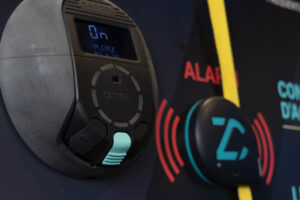
TenSyGrid: A Tool to Assess the Stability of Power Grids with High Levels of Renewable Energy
April 29, 2025
WUITIPS: Protection Solutions for Tourist Infrastructure Against Wildfires
May 2, 202530/04/2025
The Tecnologia Orientada a la Comunitat (TOC) research group at UPC, in collaboration with the Centre d'Estudis Porcins de Catalunya, leads the AEROFER project, which aims to demonstrate the viability of liquid fertilisers derived from pig manure in aeroponic cultivation, with the intention of later extrapolating it to conventional crops, thereby closing the loop from waste to resource, with a positive environmental impact on the region.
The current situation in the agricultural sector presents significant challenges, especially regarding nutrient management and the reliance on chemical fertilisers. These are subject to a production and availability crisis that has increased costs and heightened pressure on crop sustainability. At the same time, improper management of livestock manure, particularly slurry, has caused soil and groundwater contamination problems, positioning Catalonia as one of the regions most affected by associated nitrates.
In this context, the AEROFER project will demonstrate the transformation of pig manure into liquid fertilisers using an innovative ozone-based purification technology. The viability of these fertilisers will be assessed in an aeroponic cultivation system, which allows for maximum control over the plant growth process with efficient use of resources such as water and nutrients.
Aeroponics, the cultivation technique in which plants grow without soil or substrate, offers multiple advantages in terms of resource savings. This system reuses the nutrient solution, enabling it to operate even in regions with water scarcity or limited water quality. Additionally, it facilitates space-saving through vertical farming and reduces the use of chemical fertilisers, thereby promoting sustainable and industrialised agriculture.
This demonstration project seeks not only to reduce the environmental impact of pig manure but also to promote a significant shift in both the agricultural and pig farming sectors by converting a waste product into a resource to replace chemical fertilisers. It also aligns with key strategies such as the circular economy and climate change adaptation.
Budget and Funding
The project has been funded through the Call for Knowledge Transfer Demonstration Activities, within the framework of the 2023-2027 CAP Strategic Plan, by the Department of Climate Action, Food and Rural Agenda of the Government of Catalonia. AEROFER has a total budget of €51,330.19 and a duration of 28 months (February 2024 - June 2026).

Action under the PAC 2023-2027 Strategic Plan co-funded by:

Technology
You want to know more?
Related Projects
- The Visualisation, Virtual Reality and Graphic Interaction Research Group (ViRVIG) at the Universitat Politècnica de Catalunya - BarcelonaTech (UPC) has participated in the XR4ED project, an initiative that connects the educational technology (EdTech) and Extended Reality (XR) sectors, with the aim of transforming learning and training across Europe.
- The inLab FIB at the UPC has collaborated with Lizcore® for the development of a proof of concept based on artificial intelligence to improve safety in climbing with autobelay devices. The system allows the automatic and accurate detection of risk situations before starting a route.
- Researchers from the Centre for Image and Multimedia Technology of the UPC (CITM) and from the DiCode research group (Digital Culture and Creative Technologies Research Group) of the Universitat Politècnica de Catalunya – BarcelonaTech (UPC) have worked on the project The Eyes of History, an initiative of the Catalan Agency for Cultural Heritage that offers an immersive view of Catalan cultural heritage. It is especially aimed at the first and second cycles of secondary education and was created to bring heritage into the classroom. Its goal is to bring the history and monuments of Catalonia closer in a vivid and innovative way, using tools such as virtual reality and new museographic narratives.
- City and Play is a social action project coordinated by researchers from the Centre for Image and Multimedia Technology (CITM) and the DiCode research group (Digital Culture and Creative Technologies Research Group) of the Universitat Politècnica de Catalunya – BarcelonaTech (UPC), the Universitat Oberta de Catalunya (UOC) and the University of Barcelona (UB), and funded by Barcelona City Council. The aim of the project is to promote civic competences and reflection on the urban environment among adolescents through the creation of an open framework that uses methodologies based on play, co-creation and storytelling.




